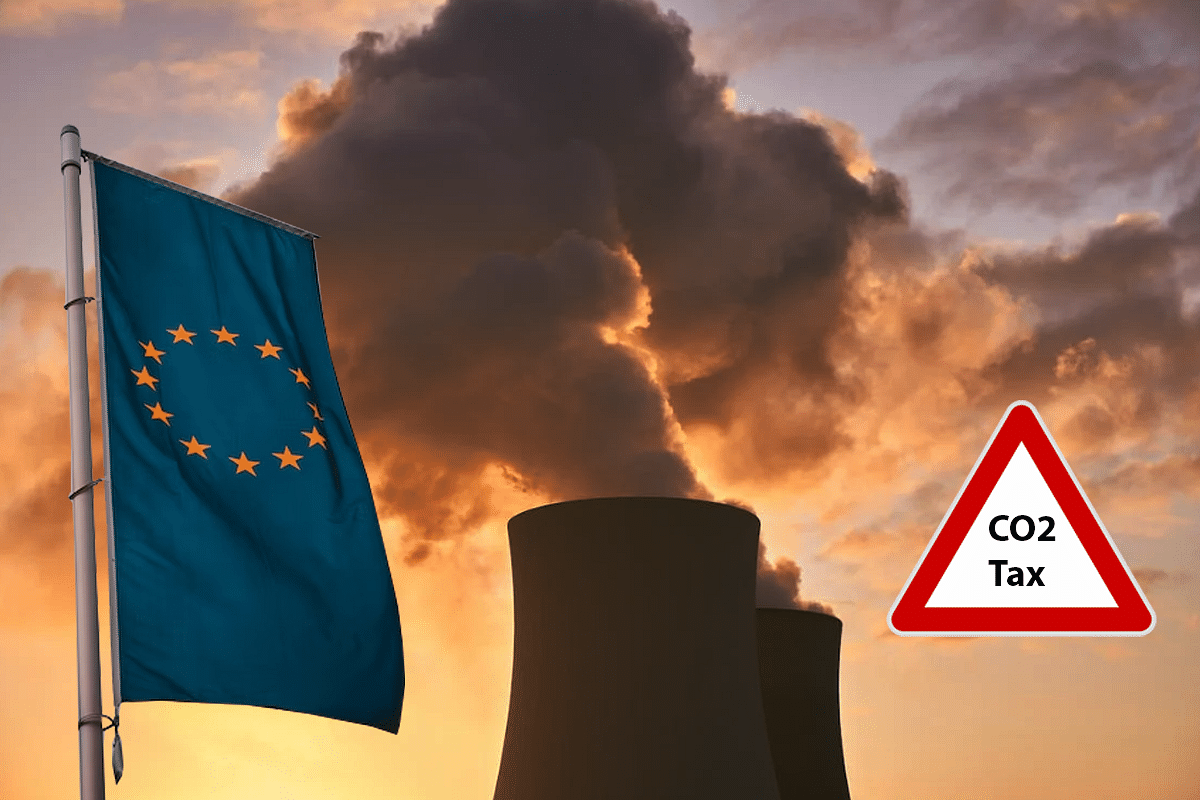Economy
If EU Goes Ahead With Carbon Tax, India Will Respond With Retaliatory Tariffs: Reports

EU's Carbon Border Tax (CBT)
India is planning to impose retaliatory tariffs on exports from European Union in response to the trade bloc’s proposed carbon tax on goods like iron, steel, and aluminium, as per reports.
The proposed Carbon Border Adjustment Mechanism (CBAM), which enters its transition period in 2023, imposes a carbon tax on imports from countries with lower or no carbon tax.
The tax could potentially impact $8 billion worth of exports from India in the iron and steel sectors, accounting for 27 per cent of India’s exports in this sector, as per the Global Trade Research Initiative (GTRI) report.
It said that India's iron and steel exports would face extra scrutiny from 1 October, and that the EU will start collecting tariffs from 1 January 2026.
BRICS countries — Brazil, Russia, India, China, and South Africa – have collectively condemned this move as discriminatory and are likely to challenge it once it comes into force. Even close partners like the United States of America have cautioned the EU against such a move.
Reports have also suggested that the Department of Commerce (DOC) has already planned to raise the issue at the World Trade Organization (WTO) for a like Committee on Trade and Environment (CTE), Committee on Market Access (CMA), Committee for Trade and Development (CTD), Council for Trade in goods (CTG), and coordinate with like-minded countries on the issue.
What is the CBAM?
The proposed Carbon Border Adjustment Mechanism (CBAM) is a carbon tax levied on imports from countries that have relaxed regulations on carbon emissions.
It “protects” European companies which pay higher carbon taxes as part of the European Green Deal, making their products costlier, from cheaper imports from countries with no or minimal carbon taxes.
The mechanism will need importers to pay for the carbon emitted while manufacturing the product in their own country.
It will not only affect carbon-intensive industries such as iron, steel, aluminium, fertilisers, cement, and electricity, but also downstream industries such as automobiles.
The European Parliament, through a resolution passed in 2021, expressed its desire to implement a WTO-compliant carbon tax system. However, it also wanted the EU to become the “global carbon price setter” for the entire world.
What are the options for India?
India is the EU’s third-largest trading partner. It doesn’t have an explicit carbon tax and has only recently introduced a carbon trading mechanism. India’s iron and steel industries are highly dependent on coal-supplied power for their operations.
While tackling the move at multilateral fora is the way to go, Indian companies could also start looking at transitioning towards clean energy alternatives and enhancing energy efficiency.
With the Modi government having already announced its commitment to reduce potential carbon emissions by an additional one billion tonnes by 2030, Indian exporters will have to make the transition sooner or later.
The government should also look at providing financing for MSMEs to upgrade to clean technologies. Indian industry could enter into clean technology partnerships with their European counterparts in the interim to enhance their competitiveness.
Introducing ElectionsHQ + 50 Ground Reports Project
The 2024 elections might seem easy to guess, but there are some important questions that shouldn't be missed.
Do freebies still sway voters? Do people prioritise infrastructure when voting? How will Punjab vote?
The answers to these questions provide great insights into where we, as a country, are headed in the years to come.
Swarajya is starting a project with an aim to do 50 solid ground stories and a smart commentary service on WhatsApp, a one-of-a-kind. We'd love your support during this election season.
Click below to contribute.
Latest